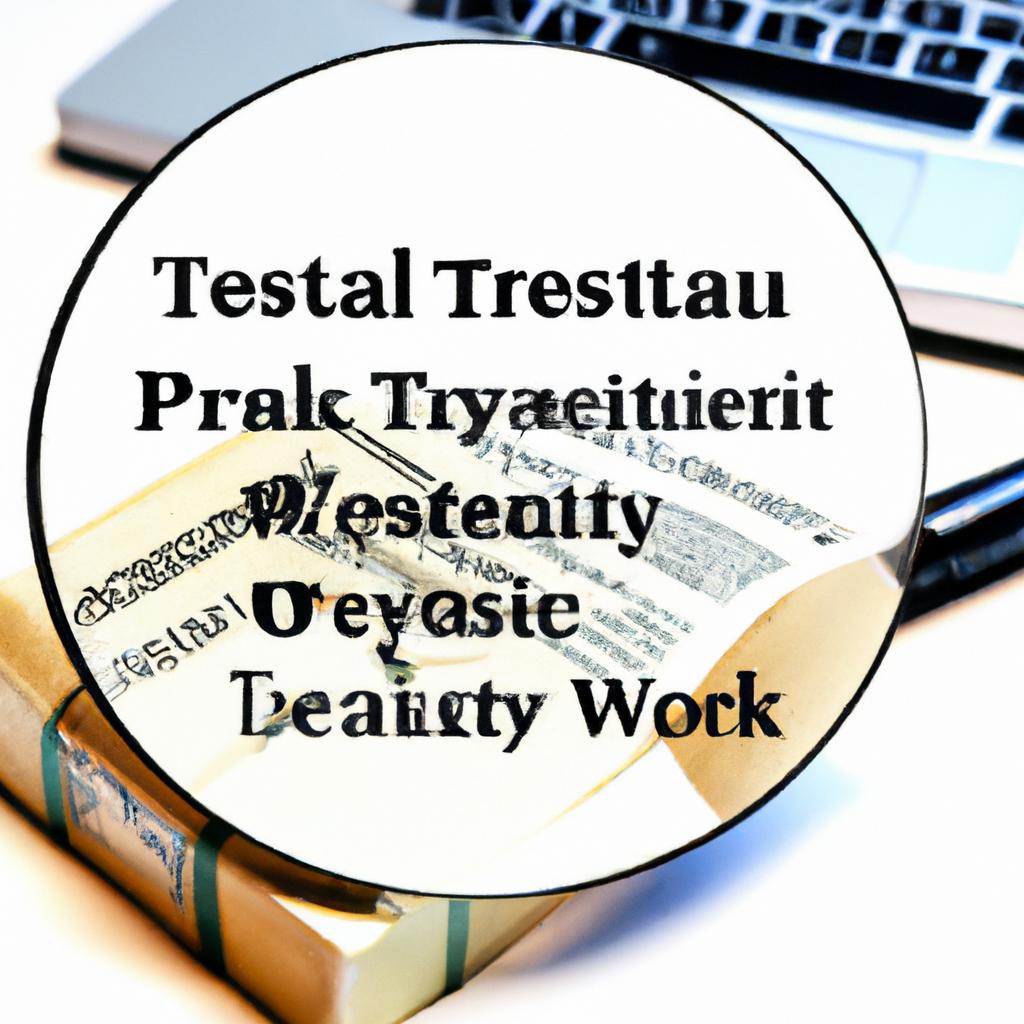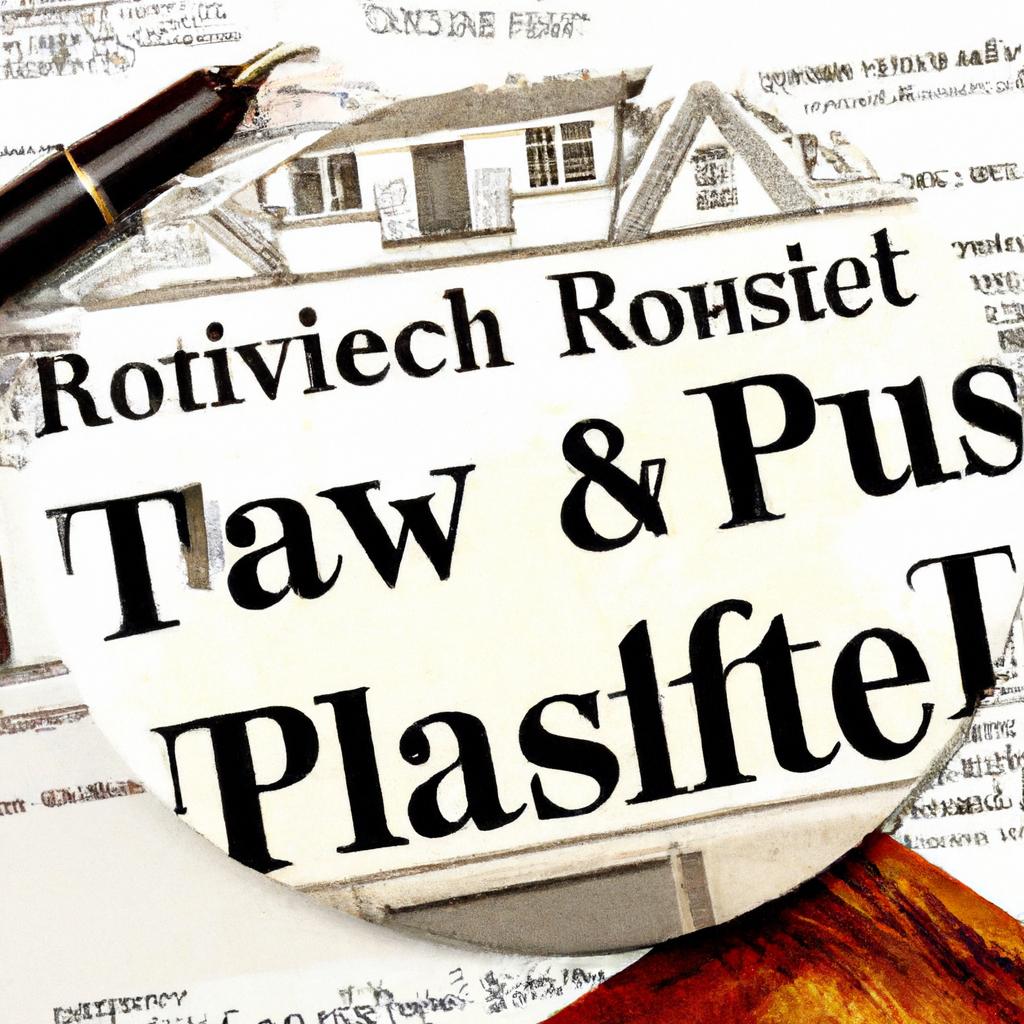As residents of the bustling metropolis of New York, we are constantly faced with the myriad of choices that come with owning real estate in this dynamic market. Many New Yorkers find themselves considering the option of placing their homes in a trust, but the decision to do so is often a complex and multifaceted one. In a city where time is of the essence and the stakes are high, it is crucial to weigh the benefits and drawbacks of such a move carefully. As experienced legal practitioners at Morgan Legal Group, we understand the importance of making informed decisions when it comes to estate planning and asset protection. In this article, we will explore the question, “Should I put my house in a trust in New York?” and provide you with the insights you need to navigate this critical decision with confidence and clarity.
Benefits of putting your New York house in a trust
Putting your New York house in a trust can offer several benefits that may be advantageous for your estate planning needs. One major benefit is that a trust allows you to avoid the probate process, which can be time-consuming, expensive, and public. By transferring ownership of your house to a trust, your heirs can avoid the often lengthy probate proceedings and receive their inheritance more quickly.
Another benefit of putting your house in a trust is the potential for tax advantages. Depending on the type of trust you create, you may be able to minimize estate taxes or avoid capital gains taxes when the house is eventually sold. Additionally, a trust provides a level of privacy that a will does not offer, as the details of a trust are not part of the public record.

Legal considerations to keep in mind when setting up a trust for your New York property
When setting up a trust for your New York property, there are several key legal considerations to keep in mind to ensure that your assets are protected and your wishes are carried out accordingly. One important aspect is understanding the different types of trusts available in New York and selecting the one that best suits your needs. Some common types of trusts include revocable trusts, irrevocable trusts, and living trusts.
Additionally, it is crucial to appoint a reliable trustee who will effectively manage the trust and distribute the assets according to your instructions. You should also consider the tax implications of placing your property in a trust, as this can have a significant impact on your estate. Consulting with an experienced estate planning attorney, such as Morgan Legal Group in New York City, can help guide you through the process and ensure that your trust is set up correctly.

How a trust can help you avoid probate for your New York home
A trust can be a powerful tool to help you avoid probate for your New York home. By transferring ownership of your home into a trust, you can ensure that it passes directly to your beneficiaries without having to go through the time-consuming and costly probate process. This can provide peace of mind knowing that your loved ones will receive your home quickly and efficiently.
Additionally, placing your home in a trust can also help protect it from creditors and ensure that it is used according to your wishes after your passing. By setting up a trust, you can maintain control over how your home is managed and distributed, even after you are gone. This can be especially important if you have specific plans for your property or want to ensure that it stays within your family for future generations.

Recommendations for choosing the right type of trust for your New York property
In order to protect your New York property and ensure it is properly managed in the future, it is crucial to choose the right type of trust. There are several factors to consider when deciding on the most suitable trust for your needs:
- Asset Protection: If you are concerned about protecting your property from creditors or lawsuits, a spendthrift trust may be the best option.
- Tax Implications: Depending on your financial situation, a revocable or irrevocable trust could help minimize estate taxes and maximize the value of your property for your beneficiaries.
- Probate Avoidance: Setting up a living trust can help your property avoid the lengthy and costly probate process, ensuring a smoother transfer of assets to your heirs.
- Specific Instructions: If you have specific wishes for how your property should be managed and distributed, a specialized trust like a charitable remainder trust or special needs trust may be more appropriate.
When considering whether to put your house in a trust in New York, it is essential to consult with an experienced estate planning attorney. At Morgan Legal Group, our team of professionals can help you navigate the complexities of trust law and develop a personalized plan that meets your unique needs and goals. By carefully evaluating your situation and exploring different trust options, we can guide you towards making the best decision for securing your property and protecting your assets for the future. Trusts offer a versatile and powerful tool for estate planning, and with the right guidance, you can ensure your property is safeguarded and your loved ones are taken care of according to your wishes. Contact us today to learn more about how trusts can benefit your estate plan in New York.
Q&A
Q: Should I put my house in a trust in New York?
A: Considering putting your house in a trust in New York can provide numerous benefits, including avoiding probate, protecting your assets, and ensuring privacy.
Q: What are the advantages of putting my house in a trust in New York?
A: By placing your house in a trust, you can potentially avoid the lengthy and costly probate process, protect your assets from creditors or legal judgments, and maintain privacy since trusts do not go through public probate proceedings.
Q: Are there any downsides to putting my house in a trust in New York?
A: While there are many benefits to putting your house in a trust, it is important to carefully consider the upfront costs and potential administrative responsibilities that come with managing a trust.
Q: How do I set up a trust for my house in New York?
A: To establish a trust for your house in New York, you will need to work with an experienced estate planning attorney who can draft the necessary legal documents and help you navigate the complex process of transferring ownership of your property to the trust.
Q: Can I change my mind and take my house out of the trust in New York?
A: Yes, you can typically amend or revoke a trust at any time, provided you follow the proper legal procedures outlined in the trust agreement and state law. It is recommended to consult with your attorney before making any changes to your trust.
The Conclusion
In conclusion, deciding whether to put your house in a trust in New York is a personal choice that requires careful consideration of your individual circumstances and goals. While a trust can offer certain benefits such as avoiding probate and providing asset protection, it may not be the right solution for everyone. It is important to seek guidance from a qualified estate planning attorney to determine the best course of action for your specific situation. Ultimately, the decision to put your house in a trust should be made after thorough research and consultation with professionals to ensure that your assets are protected and your wishes are carried out according to your wishes. So, take your time, weigh the options, and make the choice that is best for you and your loved ones.
 Should I Put My House in a Trust in New York?
Should I Put My House in a Trust in New York?
If you’re a homeowner in New York, you may have heard the term “trust” being thrown around when discussing estate planning and asset protection. But what exactly does it mean to put your house in a trust? Is it worth the effort and potential costs? In this article, we’ll explore the concept of trusts, specifically in the context of New York homeownership, and help you decide if it’s the right choice for you.
What is a Trust?
A trust is a legal agreement in which one party (the “grantor”) transfers their assets to another party (the “trustee”) for the benefit of a designated individual or group (the “beneficiaries”). Put simply, it’s a way to transfer ownership of your assets to someone else who will manage and distribute them according to your instructions.
There are many different types of trusts, each with its own set of rules and purposes. But for the purpose of this article, we’ll focus on revocable living trusts and how they pertain to New York homeowners.
Revocable Living Trusts in New York
A revocable living trust, also known as a living trust or inter-vivos trust, is a trust created during the grantor’s lifetime. As the name suggests, it can be changed or revoked at any time as long as the grantor is of sound mind. These types of trusts are popular among homeowners in New York because they offer a way to avoid probate, the legal process of administering a deceased person’s estate.
In New York, the probate process is lengthy and expensive, often involving court fees and legal representation. By placing your house in a revocable living trust, you can bypass probate and ensure that your assets are distributed according to your wishes without delays or additional costs.
Benefits of Putting Your House in a Trust
Avoiding probate is just one of the benefits of placing your house in a trust. Here are some other advantages to consider:
1. Probate can be avoided for all assets placed in trust, not just your home. This is especially beneficial for individuals with multiple properties or significant assets.
2. Protection from creditors. If you face lawsuits or financial difficulties, assets in a trust are shielded from creditors’ claims.
3. Privacy protection. Unlike wills, which are public record in New York, trusts are private documents. This means that the details of your assets and beneficiaries will remain confidential.
4. Flexibility. As long as you are the grantor and trustee of your trust, you can make changes to it at any time, including adding or removing assets.
5. Estate tax advantages. In New York, the estate tax exemption is $5.93 million for individuals and $11.86 million for married couples. Placing assets in a trust can help mitigate or eliminate estate taxes for larger estates.
Practical Tips for Placing Your House in a Trust
Now that you understand the benefits of placing your house in a trust, here are some practical tips to help you get started:
1. Consult with an estate planning attorney. It’s important to have a legal professional guide you through the process of setting up a trust. They can help you determine the best type of trust for your needs and ensure that it complies with New York laws.
2. Be aware of transfer taxes. In New York, there is a county and state transfer tax on all properties sold. However, transfers to a revocable living trust are exempt from these taxes as long as the beneficiary remains the same.
3. Consider title insurance. When transferring your home to a trust, it’s recommended to obtain title insurance to protect against any potential claims on the property.
Case Studies: Real-Life Examples of Trusts in New York
Still not convinced if putting your house in a trust is the right choice for you? Here are some real-life examples of how trusts have benefitted individuals in New York:
1. Protecting assets from creditors: A New York businessman had formed a limited liability company (LLC) to hold various assets, including his Manhattan penthouse. Unfortunately, he later faced a lawsuit resulting in a judgment against him. However, since the penthouse was owned by his LLC, which was protected by a trust, it could not be touched by the judgment.
2. Avoiding probate: An elderly New York couple owned a summer home in the Hamptons worth over $3 million. They had placed the home in a revocable living trust, ensuring that it would bypass probate upon their passing. This saved their heirs time and money in administering the estate.
First-hand Experience: A Personal Story of Trusts in New York
As a homeowner in New York, I understand the importance of protecting my assets and avoiding probate. That’s why I chose to place my house in a revocable living trust. It gave me peace of mind knowing that my property would be passed on to my designated beneficiaries without the hassle or expense of probate.
In Conclusion…
So, should you put your house in a trust in New York? That ultimately depends on your unique situation and goals. But considering the potential benefits, it’s certainly something to consider. Remember to consult with an estate planning attorney and conduct your own research before making any decisions.
To learn more about trusts and estate planning in New York, check out the official website for the New York State Unified Court System. Keep in mind that laws and regulations surrounding trusts may vary from state to state, so it’s essential to seek guidance from a professional in your area.







